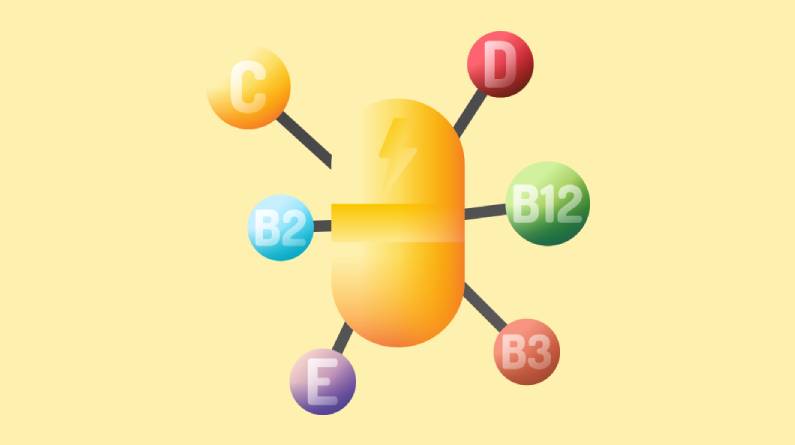Essential Minerals for Optimal Health
Minerals are vital nutrients that play a crucial role in maintaining optimal health. Our bodies require 16 essential minerals, which must be obtained through diet or supplements. These minerals are divided into macrominerals and microminerals, depending on the quantity required by the body.
Macrominerals
Macrominerals are minerals that our bodies require in larger quantities. These include:
Potassium
– Function: Regulates energy production, heart function, and muscle contractions
– Food sources: Tomatoes, sweet potatoes, dairy products, lentils, oranges, and carrots
– RDA: 4700 mg/day
– Deficiency symptoms: Fatigue, leg cramps, constipation, abnormal heart rhythm
– Excess symptoms: Palpitations, muscle pain, and weakness
Chlorine
– Function: Produces hydrochloric acid in the stomach and regulates cellular pump functions
– Food sources: Table salt (sodium chloride)
– RDA: 2300 mg/day
– Deficiency symptoms: Rare, but may occur with other abnormalities
– Excess symptoms: Dehydration, cardiovascular dysfunction, excess thirst, edema, and weakness
Sodium
– Function: Regulates energy production, heart function, and muscle contractions
– Food sources: Table salt, sea vegetables, milk, and spinach
– RDA: 1500 mg/day
– Deficiency symptoms: Inability to think, headaches, disorientation, and cognition problems
– Excess symptoms: Excess thirst, weakness, loss of appetite, confusion, muscle twitching, and bleeding in or around the brain
Calcium
– Function: Maintains muscle, heart, and digestive health, builds bones, and regulates blood cell synthesis
– Food sources: Dairy products, canned fish with bones (salmon), eggs, green leafy vegetables, oregano, dill, and cinnamon
– RDA: 1200 mg/day
– Deficiency symptoms: Muscle spasms, seizures, and confusion
– Excess symptoms: Bone pain, depression, abdominal pain, abnormal heart rhythm, and weakness
Phosphorus
– Function: Essential component of bones, cells, DNA, and energy-giving ATP molecule
– Food sources: Red meat, dairy foods, bread, rice, oats, and other grains
– RDA:700 mg/day
– Deficiency symptoms:Weakness, breathing trouble, loss of appetite, seizures, softening of bones, and coma
– Excess symptoms: Deposition of calcium in soft tissues, muscle spasms, and low calcium levels
Magnesium
– Function:Essential for energy production, builds bones, and regulates muscle contractions
– Food sources: Dark leafy greens, nuts, seeds, legumes, and whole grains
– RDA:420 mg/day
– Deficiency symptoms:Tremor, poor coordination, muscle spasms, loss of appetite, nystagmus, and personality changes
– Excess symptoms:Weakness, confusion, decreased rate of breathing, and dull reflexes
Microminerals
Microminerals are minerals that our bodies require in smaller quantities. These include:
Iron
– Function: Essential component of hemoglobin, transports oxygen from lungs to body tissues
– Food sources: Nuts, beans, meat, seafood, and fruits like pomegranate
– RDA:18 mg/day
– Deficiency symptoms: Reduced hemoglobin count, anemia, fatigue, dizziness, twitches, and hair loss
– Excess symptoms:Adversely affects liver, heart, and endocrine glands
Zinc
– Function: Essential for enzyme formation, wound healing, and immune function
– Food sources: Oysters, nuts, whole grains, dairy products, and legumes
– RDA: 11 mg/day
– Deficiency symptoms: Acne, eczema, night blindness, hair loss, oral ulceration, and reduced immunity
– Excess symptoms: Changes in blood lipoprotein levels, increased LDL levels
By understanding the essential minerals required by our bodies, we can take steps to ensure adequate intake through diet or supplements, maintaining optimal health and preventing deficiency-related disorders.
References:
https://www.hemophiliafed.org/news-stories/2010/11/essential-nutrients-vitamins-minerals/
https://medlineplus.gov/minerals.html
https://www.dailymail.co.uk/femail/article-8204/Minerals-15.html
https://www.uofmhealth.org/health-library/ta3912
https://www.webmd.com/food-recipes/guide/vitamins-and-minerals-good-food-sources#1

